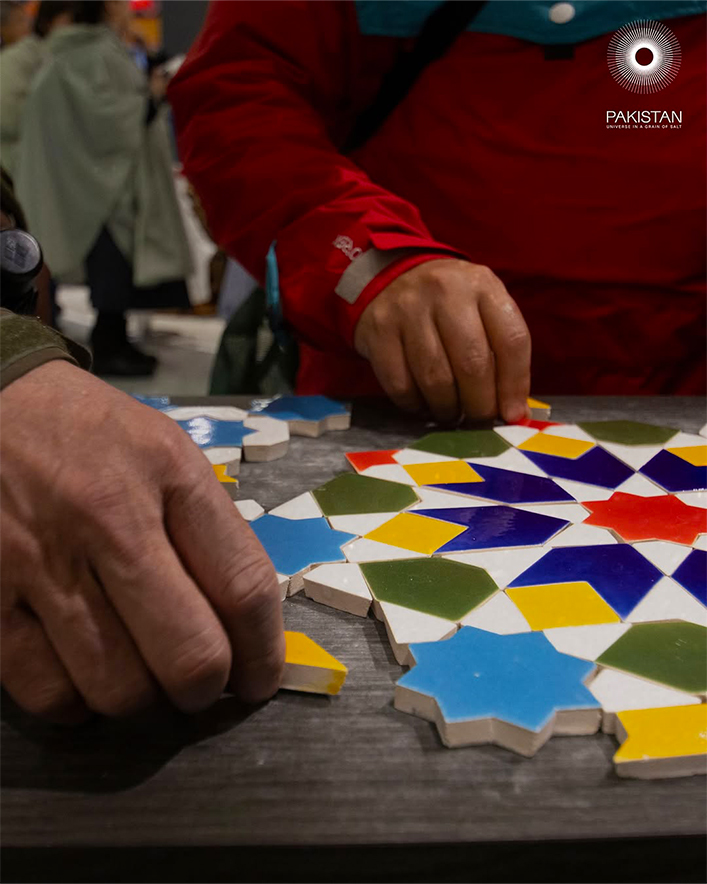ISLAMABAD: The Pakistan Pavilion is a “global crowd-puller” at the World Expo 2025 that opened in Osaka, Japan, on Sunday, with an official statement saying crowds were lining up to visit “one of the most unique pavilions” on site.
Expo 2025 Osaka was officially inaugurated by Japanese Prime Minister Shigeru Ishiba on Sunday with the theme of life, world and the future, with Tokyo hoping that the event will help restore global unity in a world plagued by conflicts and trade wars. Pakistan’s national pavilion features a design inspired by the country’s iconic salt mines amid a broader effort to promote exports of the globally popular pink salt.
During the six-month event on the reclaimed island and industrial waste burial site of Yumeshima, which means dream island, in the Osaka Bay, the city is hosting some 180 countries, regions and organizations showcasing their futuristic exhibits inside of about 80 pavilions of unique designs.
It is Osaka’s second world expo after the 1970 event that scored a huge success and attracted 64 million visitors — a record until Shanghai in 2010.
“Pakistan offers something refreshingly grounded. Here, visitors don’t just look— they run their hands across majestic pink rock salt formations, feel the textures, and reconnect with nature in a way that’s rare in today’s fast-paced world,” the official Instagram page for the Pakistan Pavilion said.
Aligned with the Expo’s theme, “Designing Future Society for Our Lives,” the Pakistan pavilion “reimagines progress through the lens of harmony with the earth.”

People visit day one of the Pakistan pavilion at the World Expo 2025 in Osaka, Japan, on Aprl 13, 2025. (Pakistan Expo)
The pavilion’s design, inspired by the Khewra Salt Mines in Pakistan’s Punjab province, incorporates a tranquil “salt garden” meant to offer visitors a multi-sensory experience reflecting both the country’s natural beauty and economic potential. The Pakistani salt mines are among the oldest and largest in the world, renowned for producing pink Himalayan salt, which is prized worldwide for its distinctive color and health benefits.
Pakistan also seeks to export more of its products by leveraging platforms such as the Osaka Expo.

Visitors hold ccolored tiles at the Pakistan pavilion during the World Expo 2025 in Osaka, Japan, on Aprl 13, 2025. (Pakistan Expo)
“This pavilion belongs to all of you,” Muhammad Naseer, Project Director of the Pakistan Pavilion, said while addressing the soft launch of the pavilion earlier this month. “Your stories, contributions, and connection to Pakistan are part of this journey.”
“Over the next months, this space will be a place of discovery, dialogue, and celebration, where we invite the world to experience Pakistan’s culture, innovation, and aspirations.”

















